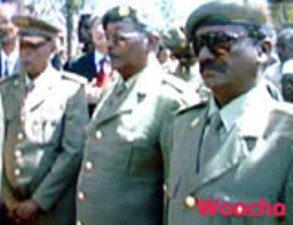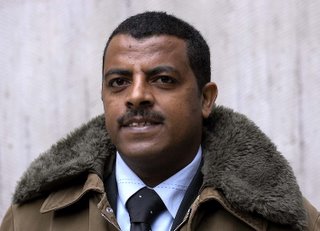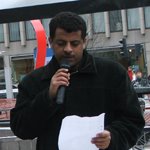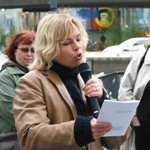By organisers
The seminar organised by the Eritrean Dialogue Forum on Saturday 26 February 2006, under a theme of , “Inter –ethnic and inter religious” was completed successfully. This was the second seminar organised by the association with a view generating a dialogue among the diverse Eritrean ethnic groups eliciting their opinion on issues that are being kept taboo but practically applied by all in their cleavages.
The objective of the meeting was to bring the various Eritrean ethnic and religious groups for exchanging information on their own historical memories of tensions and conflict. It is apparent that there are today major political organizations are all organized along ethnic and religious lines. The regime in Eritrea is the first organization getting its support by appealing ethnic and religious issues. The purpose of the seminar was to bring together all these people and discuss on the issues of ethnicity. Ethnicity is a broad concept covering a multiplicity of elements: race, culture, religion, heritage, history, language and so on.
Dialogue is different from debate in that it encourages diversity of thinking and opinions rather than suppressing these ideas. It facilitates the progressive emergence of mutual understanding of the problems and search for consensus. This is the belief of the Eritrean Dialogue Forum, in practising of dialogue one can reach agreement and find solutions, therefore dialogue is a process of problem solving. Dialogue is to listen each other not to pronounce judgements. The Eritrean Dialogue Forum creates meeting places and platforms for all Eritreans ready discuss about Eritrea and its people.
In this seminar, invited speakers were from the Kunama, Afar and Jeberti people. The seminar was moderated by Mr. Gimbot Abraha and Mr. Abdurehim Arey
(1)
The Kunama people Presenter
Mr. Peter Umet, member of the Kunama civil society in Germany and co-editor of the Kunama Website, and Lukas Davit from Sweden he is also a member of the Kunama civil society in Sweden presented their paper on the Kunama people, land and culture. Mr. Umet, in his lecture stressed the land features of the Kunama land, the historical authority of liberal egalitarian system of governance in the Kunama land, and the regional divisions of the land and people. Concerning religion , the Kunama has no conflict of religion, they belief in Christianity , islam and other natural traditional beliefs. The most significant identity factor of the Kunama people is their territoty, culture and their way life and is not religion, stressed, Umet.
Why did the Kunama could nor be able to develop is because of the continuous aggression and suppression of the internal and external forces. This continuous oppression and deprivation of their lands and culture was deteriorated by the regime in Eritrea that has taken power after independence. The Kunama people has never deserted their land and flee to the neighbouring countries during the past occupation forces but now at this time because of the ruthless dictator, flee the country and ask for asylum.
What should be done? Asked , Peter. The politic of apartheid should be uprooted and replaced by democratic ethno- federal system of governance. A system that respects the fundamental rights of the Kunama people should be established.
(2) The Afar People
Presenter
Mr. Idris Ismail from the Afar people, in his lecture provided a historical overview of the Afar people in the Horn of Africa, how they lived in before the national borders were invented in this area of Africa. When the Horn of Africa was divided in nations, the Afar people were scattered in three countries- thus Ethiopia , Djibouti and Eritrea. He analysed how the various clans and tribes inside the Afar nationality were ruled in their lands of the RED Sea region. He has elaborated the rule of the sultanates of Afar people. His analysis was chronological , thus he divided the stage before colonialism and after colonialism and how the Afar people were influenced by the foreign powers. After introductory presentation, Idris stressed, how the Italians entered the Red Sea as shipmen and explored the inland of today’s Eritrea. The Afar people were the gate and beginning of the Eritrean nationalism. What is Eritrea without the Red Sea and the Afar people? Asked, Idrs. The Afar land – the Red Sea where today the regime in Eritrea and its supporters claim has deprived the Afars their homeland and replaced them with others. How the livelihood of Afar was destroyed by the regime in Eritrea, the herdsmen , the fishermen and traders were taken their properties and today their land is experiencing demographic changes, taking the lands from the natives and distributing to others is injustice and occupation. While the Afar people flee their land other Eritreans from highlands come and take place- is this justice? What would the the Eritrean highlanders say if the Afars take power and take their lands by force? It was a national denial and immoral not to support these inhumane actions , emphasized, Idris. Finally , he concluded his lecture, how can we remedy these problems, at which part of the Eritrean body politics will we start to solve these problems and create a peaceful situation where we can live together in equality and justice.
( 3)
The Jeberti people
Presenter
Mr.Abdu Suleiman from the Jeberti civil society association in Sweden presented his paper by short introduction but later elaborated the movement of the current Eritrean people from the different directions, thus those who come from the north ( Nubea) , those who come from South ( Abyssinia), those who come from the Arab Peninisula. His analysis was very elaborative and chronological. He divided the analysis in periods- the pre- national or before the invention of borders and the time during nationalism. The flight of islam believers from the Kureshi and their asylum in Abyssinia and how they were received. After a general analysis, he has focused on the historical development of the Jeberti people in this region, their struggle against oppressors and religious persecution, he has brought the ruthless and criminal action of King Johans of Ethiopia at that time harassing and killing all the believers of Islam but was later killed by the resistant movement. In his analysis, Mr. Abdu focused more on the Emirate Ifat Jeberti on their settled livelihood as agriculturalists and farmers. They had their own rulers and local laws, they have always challenged by the Christian Abyssinien rules , they were deprived of their properties at this time but the oppression has learned them that they have created other skills of livelihood , they pursued other ways of life like trade, building and other service business activities. In Eritrea, like all others , they moved from the different directions he formerly mentioned. They used to live in all parts of Eritrea but mostly in the Eritrean highlands. They were the first who were urbanized and got the first education in Eritrea. In the rural areas of the Highland their main home is known as “Misiam” in the province of Seraye.
In his second part of his analysis, he has taken the role of the Jeberti in building of Eritrean nationalism, he has taken the periods before federation with Ethiopia, here he focused how the Jeberti resisted the false federation with Ethiopa and the sacrifice they offered he referred the letters of Martyr Abdulkadir Kabire. It was a fantastic analysis. He later has taken the role of the Jeberti in organizing both the political and armed struggle, he mentioned their participation inthe Moslem league during the political struggle in Eritrea. Finally , he mentioned how the situation of Jeberti today after independence, here he stressed that the Jeberti in Eritrea has not got what they deserve but dehumanisation and second class citizens without no rights and power in their own affairs.
Discussion:
Over 100 participants from various Eritrean diversity met in their individual capacities asked discussed , commented on the issues raised by the panel and the panel responded all the questions forwarded by the participants. Participants were almost convinced by the issues raised and showed that these unmet needs should be further discussed in order to create opportunities for democratic development in Eritrea.
From the questions raised was the one which is always asked by a certain circle., this time is not the time to raise such issues, this argument is like the ruling party’s argument, we are in the war with Ethiopia, therefore this time is not to ask about human rights and democracy in Eritrea. Such argument is only to delay or bury the realities in Eritrea. But, this argument has no reality but only used to ignore the demands of the oppressed.
The issue of nationality and ethnicity was also discussed. Mr. Abdu, in his response on this issue and how the Jebrti people are nationality , he brought the characteristics that made the Jeberti as different ethnic than the other tigrinya speaking christians; is because we are different by race,culture,religion,heritage, history and so on. He added that it is not the language that make one known as ethnic or nationality but other characteristics he added.
Participants asked for further studies if the ethnicities ( Gebail ) have reached the level of development to be called nationalities.
Some issues raised by the participants were not based on the topics discussed by the lecturers. Every lecturer has expressed its own people’s situation and how they are oppressed by the ruling regime in Eritrea in particular. The grim scenario in Eritrea can only be challenged by the union of all oppressed, concluded the meeting.
Organizing Committee












